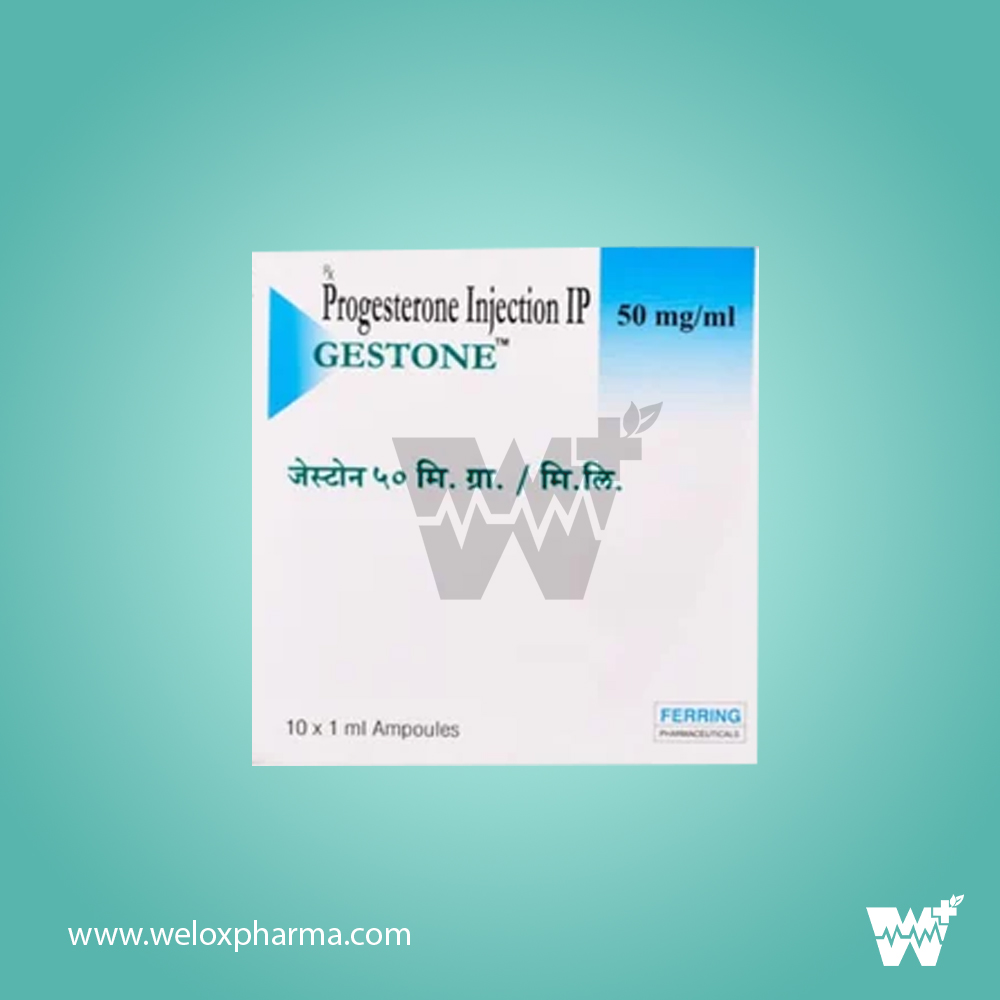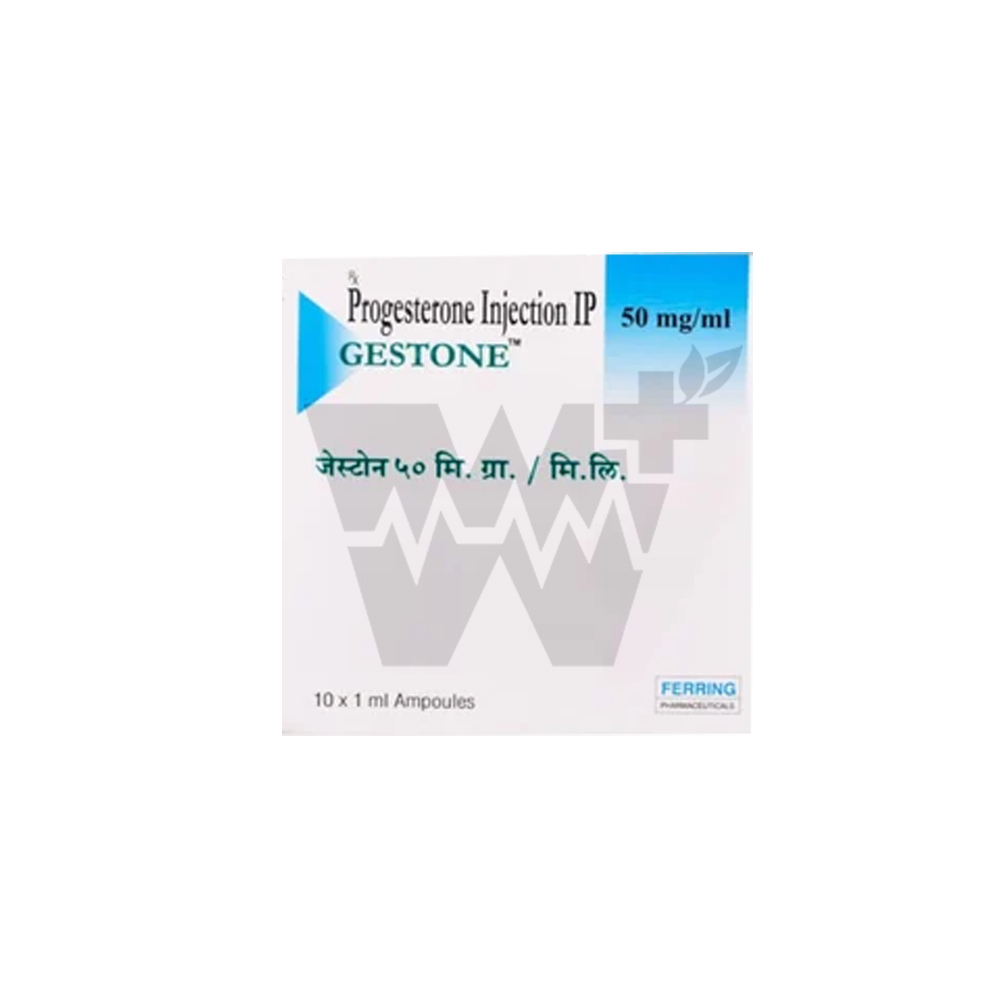



Introduction to Gestone Injection:
Gestone Injection is used to restore menstrual cycles in women whose periods have stopped. It is a natural female hormone essential for regulating ovulation (release of an egg from a woman's ovary) and menstruation. It is employed in the treatment of infertility to aid in achieving pregnancy.
Gestone Injection should be administered as directed by your doctor. It is generally given by a healthcare professional and should not be self-administered at home. Do not use more or less than you have been instructed, and do not use it for a longer duration than recommended. You may be advised to continue taking this medication for a period after confirming pregnancy.
Uses of Gestone Injection:
Hormone replacement therapy
Female infertility
Benefits of Gestone Injection:
In Hormone Replacement Therapy:
Hormone replacement therapy (HRT) is a treatment to alleviate symptoms of menopause, such as hot flashes, night sweats, mood swings, vaginal dryness, and reduced sex drive. As menopause can last for several years, this treatment can significantly improve your daily life and mood. Progesterone is one of the two major hormones (the other being estrogen) used in this treatment. While it may not address all your symptoms, consult with your doctor. Use this medication as prescribed and for the duration recommended by your doctor.
In Female Infertility:
Gestone Injection contains progesterone, a female hormone crucial in the regulation of ovulation and menstruation. It is used to induce menstrual periods in women who have not reached menopause but are not having periods due to a lack of natural progesterone in the body. This medication helps prepare the uterus for pregnancy by thickening the uterus lining (endometrium), increasing the chance of a successful pregnancy. Use the medication as prescribed for it to be effective. You may be asked to continue this treatment for a period after becoming pregnant.
Mechanism of Action of Gestone Injection:
Gestone Injection is a progesterone (female hormone). It works on the lining of the uterus and helps establish and maintain pregnancy in infertile women. It assists in protecting the uterus from the adverse effects of estrogen when used for the treatment of postmenopausal symptoms.